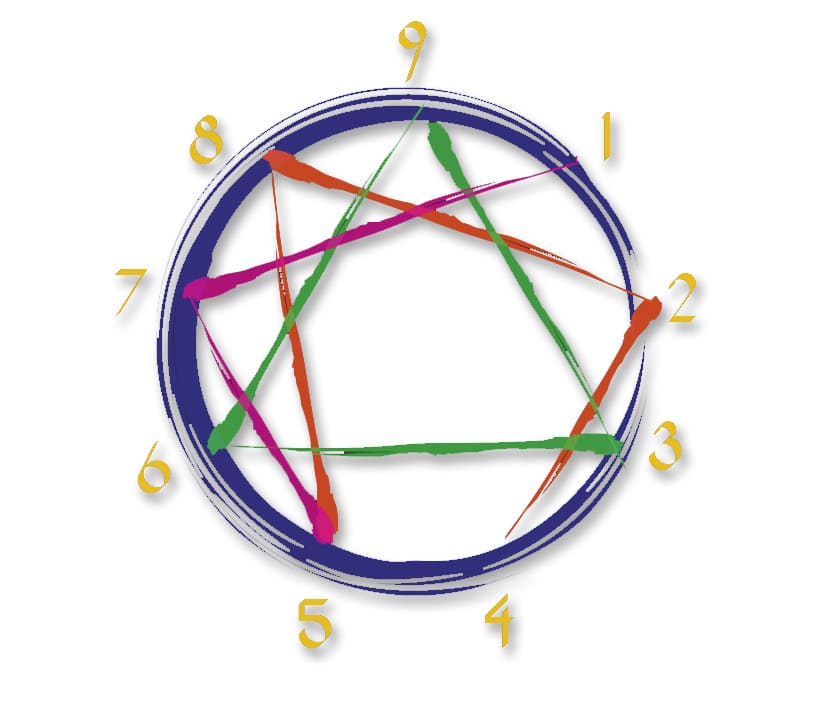
Eights, Nines and Ones usually have no inherent trouble with action. Instead, they tend to unconsciously overlook themselves and habitually react from an emotional ground of anger. These three styles generally have the most confusion in the realm of thinking and often struggle with remembering their own needs.
In Enneagram literature, Eights, Nines and Ones are called “instinctual types” in that they tend to be body sensors, people who know things physically and intuitively before they know them cognitively. As an Eight said, “I basically function on impressions. They start in my gut and work their way up to my head.” People in this trio are more prone to difficulties with correct mental conception and often experience a kind of cloud in the mind.
Imagine being in the middle of a lively party full of people you know, none of whom can see or hear you. Like the invisible man you can physically influence events, but you still go unseen. You know you’re present, but for some mysterious reason no one else does. Occasionally someone looks your way, and you start to respond; then you realize that they are looking beyond you to someone else. At other times, you overhear your friends discussing you in your absence.
After trying to interact, you grow increasingly frustrated by the situation. But gradually you begin to think, “Well, maybe I’m not really here.” A kind of dimness starts to settle over your perceptions and gradually you forget why you came to the party, what you want and even who you are. Something in you has given up and accepted the situation. But on another level you feel angry.
Eights, Nines and Ones all feel invisible and angry but react to it differently. An Eight at the imaginary party might grow determined to demonstrate her presence in a way that will be noticed, to correct the injustice of being overlooked. A Nine might become resigned to being unseen and start freshening the party goers’ drinks, forgetting about his anger or expressing it indirectly. A One could start cleaning up the mess at the buffet table, channeling his anger into a preoccupation with order.
Eights, Nines and Ones are generally more kinesthetic and auditory and less visual. They may see the external world clearly but have foggy or distorted inner vision, especially when trying to focus on their own needs and priorities. All three styles tend to think in polarized opposites and may reduce complex situations into all-or-nothing, “either/or” propositions. This is a thought disorder rather than problem with the heart or will; it’s hard to think clearly about your personal priorities when you’re not really there.
Eights tend to think in polarities related to being strong – “you’re either with me or against me.” Nines can get mentally absorbed in the irrelevant or feel caught between two opposing choices, neither of which the Nine actually cares about. Ones will distort their thinking by reducing multi-dimensional reality into oversimple black-and-white categories. All three of these styles have little trouble taking action but may struggle with correctly conceiving what to do.
As body sensors, Ones, Eights and Nines all tend to numb their emotions by turning them into physical sensations. Instead of saying, “that hurts my feelings” or “I’m upset,” someone from this trio might say “that makes my skin crawl,” or “I’m restless.” The person is aware of a physical feeling rather than an emotional one.
Eights can turn their emotions into sexual lust and physical energy, while Nines can turn theirs into sleepiness, headaches or skin rashes. Ones may translate their emotions into body tension and rigidity – what is called “character armor.” A One could need to cry but instead feel tense, irritable or exhausted.
In Enneagram books the tendency to delete your personal position is called self-forgetting, but another term for it might be hypnotic amnesia. This difficulty is often described as a condition of “mental sleep” but another term for confused polarized thinking is pseudo thinking.
To varying degrees, Eights, Nines, and Ones grow up feeling overlooked. People with these styles can experience their early world as indifferent or as a place where their vulnerabilities and needs had no place. Unlike Twos, Threes and Fours who felt misidentified, Eights, Nines, and Ones felt invisible or ignored.
Carried forward in time, adults with these backgrounds habitually overlook themselves in anticipation of being unseen by others. Eights, Nines, and Ones all tend to neglect their needs, as a way to avoid the pain of being neglected by others. If Twos, Threes and Fours tend to be self-rejecting and Fives, Sixes and Sevens tend to be self-opposing, Eights, Nines, and Ones tend to be self-deleting.
Adult Eights delete themselves and then compensate by overstating their presence. Nines delete themselves and then focus on adapting to and accommodating their environment. Ones delete themselves and displace their needs onto objectified principles, forgetting what they actually want, attending instead to what “should” be done.
The primary wound shared by these styles is to their sense of being; it’s a lack of personal recognition, a wound of neglect. The ruling paradox for these styles is: “to be nurtured and cared for I must pretend I’m not here.”
The general challenge for Eights, Nines, and Ones is to begin to see themselves and recover their own presence, to acknowledge their needs and focus on their personal priorities and inner sense of themselves. As they grow and change they also begin to think and see more clearly.

